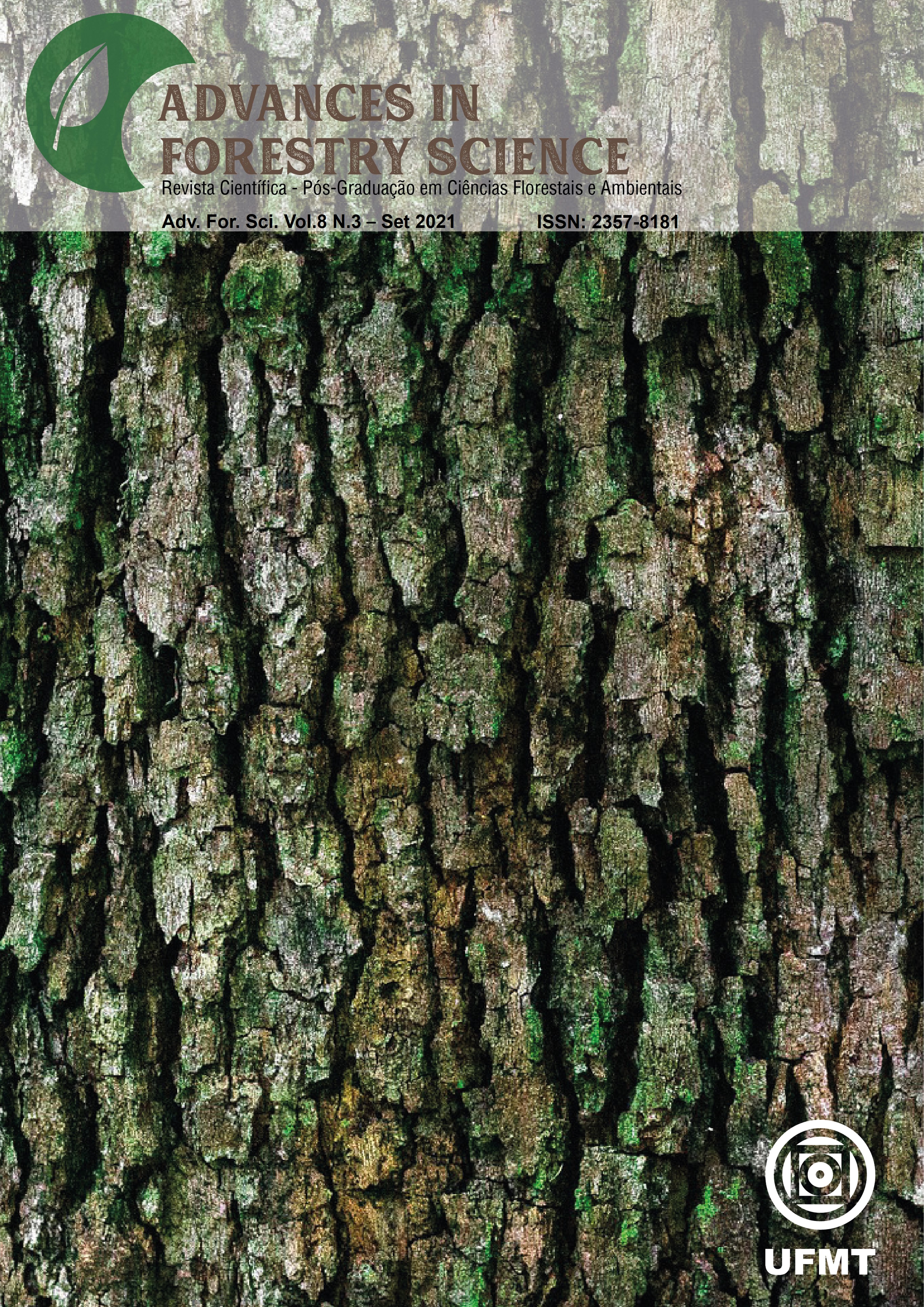Modeling growth of total height using early data from forest inventories in fast growing Eucalyptus spp plantations
DOI:
10.34062/afs.v8i3.12250Resumo
Neste trabalho foi avaliada a tendência de crescimento representada por três modelos biológicos empregados na modelagem do crescimento e da produção florestal (Schumacher; Chapman-Richards; Logística). Optou-se por estas curvas por serem amplamente utilizadas por profissionais da ciência florestal. As funções foram ajustadas sob a hipótese de que há influência das medições iniciais, 6 e 12 meses, no formato das curvas de crescimento para a altura média do povoamento, e por consequência na estimativa de seus parâmetros. Os dados, que compuseram a base de ajuste foram originados do monitoramento contínuo realizado aos 6, 12, 24 meses e posteriormente a cada 12 meses de forma a gerar os padrões de crescimento para a variável analisada. Os resultados permitiram inferir que independente da forma de ajuste, a função de Chapman-Richards foi a que apresentou as melhores estatísticas, com valores de BIAS reduzidos em até 30% quando comparada às demais. A função de Schumacher foi a que apresentou o desempenho menos satisfatório dentre os critérios propostos no estudo. E assim, diante dos resultados obtidos, sugerimos uma reflexão mais ampla acerca do tema crescimento e produção, em especial, para o uso de modelos biométricos aplicados em projeções da produção florestal, em que, se expecta estabilidade e aderência das curvas aos dados

